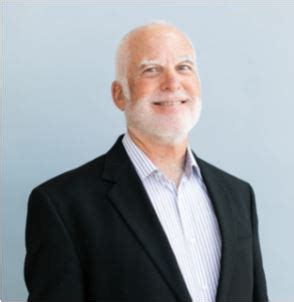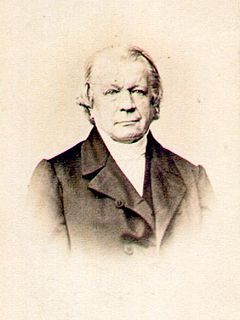A Quote by Thomas Aquinas
Perfection of moral virtue does not wholly take away the passions, but regulates them.
Related Quotes
Why should we desire the destruction of human passions? Take passions from human beings and what is left? The great object should be not to destroy passions, but to make them obedient to the intellect. To indulge passion to the utmost is one form of intemperance - to destroy passion is another. The reasonable gratification of passion under the domination of the intellect is true wisdom and perfect virtue.
It is difficult to say which is the greatest evil--to have too violent passions, or to be wholly devoid of them. Controlled with firmness, guided by discretion, and hallowed by the imagination, the passions are the vivifiers and quickeners of our being. Without passion there can be no energy of character. Indeed, the passions are like fire, useful in a thousand ways, and dangerous only in one--through their excess.
Take away material prosperity; take away emotional highs; take away miracles and healing; take away fellowship with other believers; take away church; take away all opportunity for service; take away assurance of salvation; take away the peace and joy of the Holy Spirit... Yes! Take it all, all, far, far away. And what is left? Tragically, for many believers there would be nothing left. For does our faith really go that deep? Or do we, in the final analysis, have a cross-less Christianity?
Sorrow and happiness are the heresies of virtue; joy and anger lead astray from TAO; love and hate cause loss of virtue. The heart unconscious of sorrow and happiness - that is perfect virtue. One, without change - that is perfect repose. Without any obstruction - that is the perfection of the unconditioned. Holding no relations with the external world, - that is perfection of the negative state. Without blemish of any kind, - that is the perfection of purity.
Natural good is' so intimately connected with moral good, and natural evil with moral evil, that I am as certain as if I heard a voice from heaven proclaim it, that God is on the side of virtue. He has learnt much, and has not lived in vain, who has practically discovered that most strict and necessary connection, that does and will ever exist between vice and misery, and virtue and happiness.
Whoever wishes to make progress in perfection should use particular diligence in not allowing himself to be led away by his passions, which destroy with one hand the spiritual edifice which is rising by the labors of the other. But to succeed well in this, resistance should be begun while the passions are yet weak; for after they are thoroughly rooted and grown up, there is scarcely any remedy.
The mind of a man that loves God does not fight against things or thoughts about them, but against the passions that are connected with these thoughts. That is, he does not struggle against a woman, or against one who has insulted him, and not against the images of them, but against the passions that are aroused by these images.




































